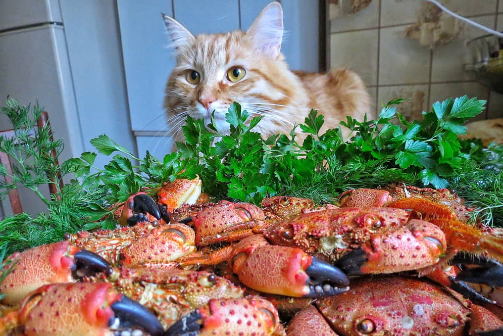Can Cats Eat Crab Rangoon:Deciphering the Delicacy Dilemma

In the vast and varied world of pet nutrition, the question of what is safe and beneficial for our feline friends to consume is a topic of endless fascination and considerable debate. Among the myriad of human foods that cat owners ponder over, crab rangoon stands out as a particularly intriguing subject. This creamy, crab-filled delicacy, beloved by many for its rich flavor and crispy exterior, begs the question: Can Cats Eat Crab Rangoon?
Read More: Openhouseperth.net Insurance
Understanding Crab Rangoon: Ingredients and Concerns
Before diving into whether crab rangoon is suitable for cats, it’s crucial to understand what this popular appetizer contains. Traditionally, crab rangoon is made from a mixture of crab meat, cream cheese, garlic, green onions, and Worcestershire sauce, all wrapped in a wonton wrapper and deep-fried to golden perfection. While this combination of ingredients makes for a delicious treat for humans, several components raise red flags when it comes to feline consumption.
The Feline Digestive System: A Delicate Balance
Cats are obligate carnivores, meaning their bodies are designed to digest and thrive on a diet primarily composed of meat. Their digestive systems are not well-equipped to handle a high amount of carbohydrates, dairy, or certain seasonings, which can lead to digestive upset or more serious health issues. Given this dietary specificity, it’s important to scrutinize the ingredients in crab rangoon through the lens of feline nutrition.
Ingredient Analysis: What’s Safe and What’s Not?
- Crab Meat: In moderation, plain crab meat can be a safe and nutritious treat for cats, offering high-quality protein and omega-3 fatty acids. However, the crab meat in crab rangoon is often mixed with other ingredients that may not be cat-friendly.
- Cream Cheese: Dairy products can be problematic for cats. Many felines are lactose intolerant, and consuming dairy can lead to digestive distress, including diarrhea and vomiting.
- Garlic and Onions: Both garlic and onions are toxic to cats, even in small amounts. They can cause gastrointestinal irritation and could potentially lead to anemia if consumed in larger quantities.
- Worcestershire Sauce: This condiment often contains ingredients like onions, garlic, and salt, which are not suitable for cats. High sodium content can be harmful to felines, leading to dehydration or salt poisoning in severe cases.
- Wonton Wrappers and Deep-Frying: The high carbohydrate content of the wonton wrappers, combined with the unhealthy fats from deep-frying, makes this component of crab rangoon unsuitable for cats. Cats require a diet high in protein and fat from animal sources, not carbohydrates and trans fats.
Nutritional Considerations: The Bigger Picture
While the occasional tiny, plain piece of crab meat may not harm your cat, the overall composition of crab rangoon poses several health risks. The high-fat content, coupled with potentially toxic ingredients and an abundance of carbohydrates, strays far from the ideal diet for a cat. Furthermore, introducing such rich and unusual foods can disrupt your cat’s regular eating habits, leading to pickiness or a refusal to eat their standard, nutritionally balanced meals.
Safe Alternatives: Keeping Kitty Content
For cat owners looking to treat their pets without risking their health, there are safer alternatives to crab rangoon. Commercially available cat treats made with fish or crab are formulated to be both safe and appealing to cats, providing the seafood flavor they might crave without the harmful ingredients. Additionally, small portions of cooked, plain crab meat can be offered occasionally as a special treat, ensuring that it does not contain any seasonings, garlic, onions, or other harmful additives.
Conclusion: Caution and Care in Feline Feeding
In conclusion, while crab rangoon may be a tantalizing treat for humans, it is not a suitable or safe choice for our feline companions. The potential risks far outweigh the momentary pleasure your cat might experience from tasting this human delicacy. As responsible pet owners, it’s our duty to provide our cats with a diet that supports their health and well-being, steering clear of foods that could pose a danger. By choosing cat-appropriate treats and sticking to a balanced, species-appropriate diet, we can ensure our beloved pets enjoy a long, healthy, and happy life by our sides.




